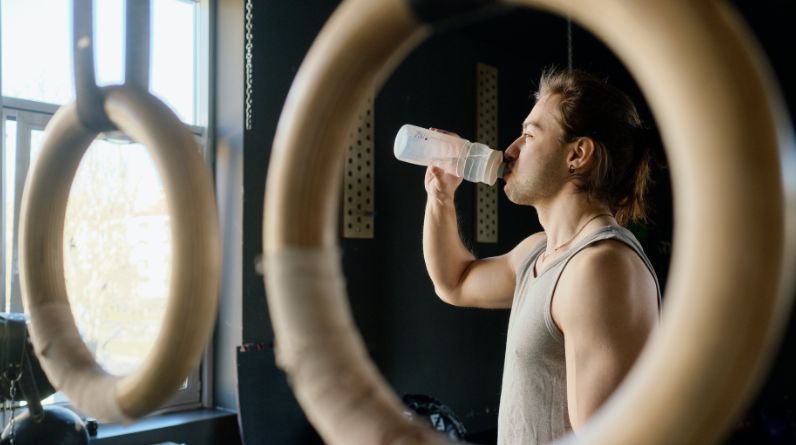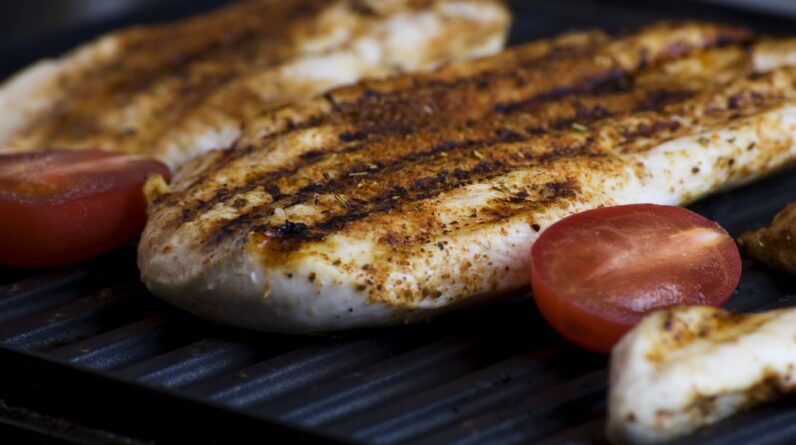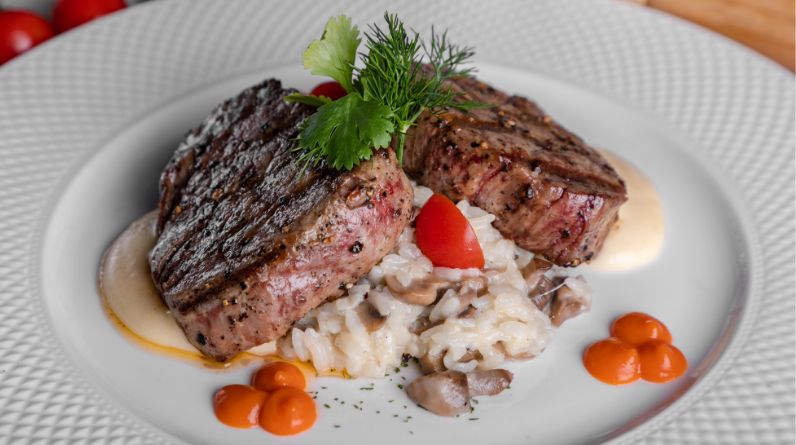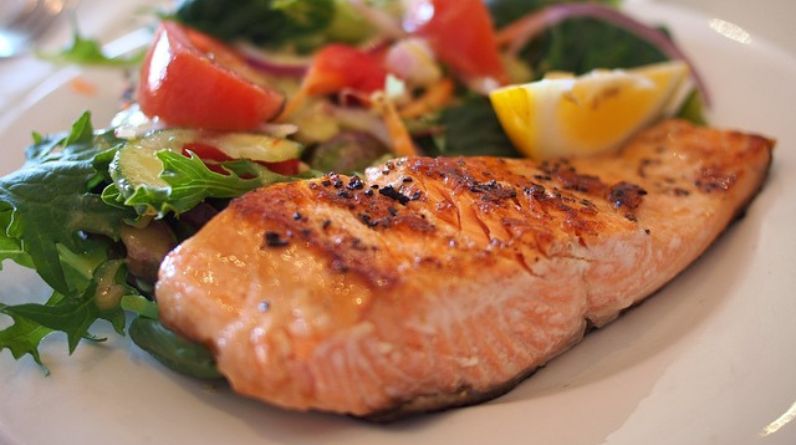
FUELING THE GAINS WITH GOOD CARBS
Carbohydrates – the perennially misunderstood macronutrient in the world of fitness and bodybuilding. They’ve been put through the wringer, blamed for all sorts of dietary misfortunes, and yet, they remain an athlete’s best friend, especially when it comes to those iron-pumping, muscle-popping bodybuilders. So, dear reader, if you’ve ever been on the fence about carbs or wondered if they deserve a spot on your plate, prepare to embark on a witty journey through the world of carbohydrates for bodybuilders.
Carbs, the Unsung Heroes of the Plate
Before we dive deep into the world of carbohydrates, let’s address the elephant in the room – the misconception that carbs are your body’s mortal enemy, plotting against your efforts to chisel that sculpted physique. Well, guess what? Carbs are more like your trusty sidekick, boosting your performance and helping you reach your bodybuilding goals.
You see, carbs are the body’s primary energy source. When you’re busting out squats or slinging kettlebells, your muscles need fuel, and carbs provide the rocket fuel your body craves. They’re like the gasoline in your high-performance sports car; without them, you’re just a fancy-looking lawn ornament.
The Good, the Bad, and the Fiber-Rich
Now, not all carbs are created equal. In the world of carbs, there are the good guys, the bad guys, and the downright heroes. The good carbs are complex carbohydrates – think whole grains, fruits, veggies, and legumes. These are the trusty steeds that will power you through those grueling workouts.
On the flip side, we have the bad guys, the simple carbs. These are your sugar-laden, overly processed foods that give you a quick jolt of energy and then leave you crashing on the couch, reevaluating your life choices. We’re looking at you, sugary cereals and soda.
And then, we have the heroes – fiber-rich carbs. These are the true champs. Fiber not only supports digestion but also helps keep you feeling full. Imagine that, a nutrient that helps you control your appetite while you’re trying to bulk up. It’s like having a personal nutrition coach whispering in your ear.
Timing Is Everything
Now, you might be wondering, “When should I consume these glorious carbs?” Timing is everything, my fellow bodybuilder.
Pre-Workout: This is your golden opportunity to load up on complex carbs. They’ll give you the sustained energy you need to power through your reps, sets, and burpees without crashing halfway through. Think oatmeal, sweet potatoes, or a hearty quinoa salad.
Intra-Workout: If you’re going for an extended workout session, consider sipping on a carb-rich drink to keep your energy levels steady. This is like having a pit stop during a race to refuel.
Post-Workout: This is the moment of glory for your carb intake. Right after your workout, your muscles are like sponges, soaking up nutrients for recovery and growth. A mix of carbs and protein will help replenish glycogen stores and kickstart muscle repair. Rice and lean chicken, anyone?
Snack Attack: Don’t forget to sprinkle some carbs into your snacks throughout the day. Greek yogurt with berries or a banana with almond butter can keep you on track and your energy levels stable.
Frequently Asked Questions
1. Are carbs really necessary for bodybuilders?
Carbohydrates are like the premium fuel your body needs to rev its engine during workouts. When you’re pushing the limits with weights or engaging in high-intensity interval training, your muscles demand energy, and they want it fast. Carbs step in as the quickest and most efficient way to supply that energy.
Here’s the deal: during exercise, your body burns through its glycogen stores, which are essentially stored carbohydrates in your muscles and liver. When these glycogen reserves run low, you’ll hit that proverbial wall, feeling fatigued, weak, and unable to maximize your training. But with a good carb supply, you can keep going and going, just like the Energizer Bunny.
Moreover, carbs play a crucial role in post-workout recovery. After a tough training session, your muscles are like sponges, soaking up nutrients to repair and grow. Carbs help shuttle essential amino acids (the building blocks of protein) into your muscle cells, aiding in the recovery process. So, yes, carbs are the unsung heroes of bodybuilding nutrition.
2. Will eating carbs make me gain fat?
Carbs themselves won’t magically transform into fat and settle on your waistline. Weight gain or loss is fundamentally about the balance between calories in (from food) and calories out (through physical activity). If you consume more calories than you burn, regardless of where those calories come from, you’ll gain weight.
However, here’s where the misconception often arises: Carbs can lead to water retention. For every gram of carbohydrates stored as glycogen, your body retains about 3 grams of water. So, when you load up on carbs, you might notice a temporary increase in weight. This is water, not fat. It’s crucial not to confuse the two.
The key to staying lean while building muscle is to ensure you’re not consistently eating more calories than your body needs. If you match your carb intake to your energy expenditure (which, as a bodybuilder, can be substantial), those carbs will provide the energy necessary to fuel your workouts and support muscle growth without causing unwanted fat gain.
3. What are the best sources of complex carbs for bodybuilders?
Complex carbs, as opposed to simple carbs (found in sugary snacks and processed foods), are your go-to fuel source. They provide sustained energy and are packed with essential nutrients. Here are some top-notch sources:
Brown rice: It’s a bodybuilder’s staple. High in fiber and slow-digesting, it provides long-lasting energy.
Quinoa: A complete protein source and loaded with complex carbs, it’s perfect for muscle recovery.
Oats: These are a great way to start your day. They’re rich in fiber and provide a steady release of energy.
Fruits and vegetables: They offer a wide range of vitamins, minerals, and antioxidants in addition to complex carbs. Spinach, sweet potatoes, and berries are among the top choices.
Legumes: Beans, lentils, and chickpeas are packed with protein and complex carbs, making them excellent for muscle growth.
These complex carb sources are your allies in maintaining energy levels throughout the day and during intense workouts.
4. Can I eat simple carbs like sugary snacks?
Ah, sugary snacks – they taste so good but can lead to a rollercoaster of energy highs and crashes. Simple carbs, like those found in candy and sugary beverages, provide a rapid spike in blood sugar followed by a sharp drop, leaving you feeling tired and craving more sugar.
While they can be tempting for a quick pick-me-up, relying on simple carbs for your main energy source isn’t ideal, especially as a bodybuilder. Your goal is to maintain consistent energy levels to power through those demanding workouts. Complex carbs, found in whole grains, fruits, and vegetables, release energy slowly and help you avoid those energy crashes.
That said, enjoying sugary snacks occasionally won’t derail your progress. Think of them as rewards for hitting your fitness goals or just as a sweet treat to satisfy your cravings.
5. How much fiber should I aim for in my diet?
Fiber is your digestive system’s best friend, and as a bodybuilder, you want your gut to be in top-notch shape to absorb all those nutrients efficiently. Adequate fiber intake promotes regular bowel movements, which can help prevent uncomfortable bloating and constipation.
Furthermore, fiber is like the bouncer at the nightclub of your stomach; it helps control your appetite. High-fiber foods keep you feeling fuller for longer, which can be a significant advantage when you’re trying to maintain a balanced diet and avoid overeating. Aim for a variety of fiber-rich foods like whole grains, fruits, vegetables, and legumes to hit that daily goal.
6. What’s the deal with carb cycling?
Carb cycling is like the juggling act of carbs. It involves strategically cycling between days of higher carb intake and days of lower carb intake throughout the week or month.
The idea behind this strategy is to use the high carb days to fuel intense workouts and replenish glycogen stores in your muscles. On low carb days, you encourage your body to tap into its fat stores for energy, potentially aiding in fat loss.
Carb cycling can be effective for bodybuilders looking to manage their weight, particularly when they’re simultaneously trying to build muscle and shed fat. It provides an approach that keeps your metabolism guessing and prevents adaptation, which can occur with consistent carb intake.
However, it’s not a one-size-fits-all solution. Carb cycling can be complex and may not be suitable for everyone. It often requires meticulous planning and tracking of your macronutrient intake. Consult with a nutritionist or dietitian to determine if it’s the right strategy for your bodybuilding goals.
7. Can I consume carbs late at night?
It’s a common myth that eating carbs late at night will lead to weight gain. In reality, the timing of your carb intake matters less than the total amount of carbs you consume throughout the day.
Having a small serving of complex carbs before bedtime can actually be beneficial for bodybuilders. During sleep, your body is still at work repairing and growing your muscles. Providing it with a slow-digesting source of carbs can prevent muscle breakdown by ensuring a steady supply of energy throughout the night.
Consider a snack like Greek yogurt with berries, a whole-grain cracker with almond butter, or a serving of cottage cheese. These options won’t spike your blood sugar and will keep you in the muscle-building game even as you catch some Z’s.
8. Are there any carbs I should avoid?
While we’ve established that simple carbs aren’t inherently evil, they do come with a warning label. Foods and drinks loaded with refined sugars, such as sodas, candy bars, and pastries, can wreak havoc on your energy levels and your waistline if you overindulge.
These simple carbs cause rapid spikes in blood sugar levels, followed by energy crashes that leave you feeling lethargic and craving more sugar. Over time, excessive consumption can lead to fat gain, especially when the surplus sugar is stored as fat in your body.
It’s not about avoiding these treats entirely (because life is too short not to enjoy a cookie now and then), but rather, it’s about being mindful of your consumption. Use them as occasional rewards or indulge in moderation. Your energy levels, mood, and muscle-building efforts will thank you.
9. How do carbs affect insulin levels?
Insulin is like the gatekeeper of your body’s cells. It helps regulate your blood sugar levels by allowing glucose (sugar) to enter your cells, where it can be used for energy or stored for later.
When you consume carbs, especially simple carbs like those found in sugary snacks and drinks, your blood sugar levels can spike. In response, your body releases a surge of insulin to usher that sugar into your cells. This can lead to rapid drops in blood sugar, causing you to feel tired and hungry shortly after consuming simple carbs.
To manage insulin levels effectively, it’s wise to focus on complex carbs, which are digested more slowly and cause more gradual increases in blood sugar. Pair them with protein and healthy fats in your meals to further stabilize blood sugar levels and provide sustained energy.
10. Can I build muscle on a low-carb diet?
Building muscle on a low-carb diet is like trying to drive a sports car with an empty gas tank – it’s possible, but you won’t get far. Carbs are your body’s primary source of energy, especially during intense workouts, and they play a pivotal role in muscle recovery.
Low-carb diets, such as ketogenic diets, severely restrict carb intake, often to less than 50 grams per day. While these diets can lead to weight loss, they may not be the most effective choice for bodybuilders. Without an adequate supply of carbs, you may find it challenging to maintain the energy levels needed for demanding workouts.
Moreover, carbs play a crucial role in muscle recovery by replenishing glycogen stores and supporting protein synthesis. For most bodybuilders, a moderate to high-carb diet that aligns with their energy needs is more conducive to building and maintaining muscle effectively. However, if you’re determined to go low-carb, it’s essential to work closely with a nutritionist or dietitian to ensure you’re meeting your nutritional requirements and fueling your body adequately for your fitness goals.






